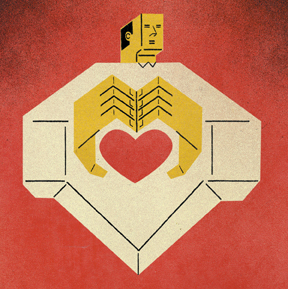David Plunkert |
|
 |
|
By DAVID MAGNUS
Question: My son has been in a terrible accident and has suffered severe brain damage, though he is not brain dead. If we make the decision to withdraw life support, can he become an organ donor?
I’ve heard that unless he is brain dead before life support is withdrawn, he can’t. Is this true?
Answer: It depends on his hospital’s policy.
Most hospitals allow donation only from patients whose injuries have already resulted in brain death. These institutions have ethical qualms about having death take place during the organ donation process — as opposed to before the process begins.
But in the past few years an attempt to increase the potential pool of organ donors has begun through a process called “donation after cardiac death,” or DCD. A growing number of hospitals, including Stanford, are allowing patients who are not brain dead to serve as organ donors. In these cases, the physician withdraws life support and declares death when the heart stops beating.
DCD raises many challenging issues. The hospital must set up policies to ensure that those deciding whether to withdraw life support are never influenced by others’ desires to procure organs. It is imperative that decisions on behalf of patients be made with only the patients’ interests in mind.
One of the most common difficulties that arises in DCD is that a patient’s heart can unexpectedly continue beating for hours after life support has been withdrawn, despite the transplant team’s effort to choose patients who will pass away within a few hours. This is a problem because the team needs to stand by the patient, ready to take the organs within three to five minutes after the heartbeat ceases. Most hospitals set a two-hour cut off instead of keeping the team at the ready for a wait that could extend for hours or even days. If the patient’s heartbeat continues beyond the deadline, the team gives up on the donation.
Family members can find it wrenching to prepare for this process only to be told that in the end their loved one’s organs will not be used. If the withdrawal was supposed to take place in the operating room, this may mean moving the donor back to the intensive care unit or to the floor to await death at an unknown time.
With the right policies in place, it is possible for hospital physicians and other staff to conduct DCD ethically and to allow families such as yours the small comfort of at least helping others. Here at Stanford, we conduct an ethics consult for every potential DCD, and we work closely with the California Transplant Donor Network to ensure that families make informed decisions.
Nothing can ever take away the pain you are going through, but thanks to you at least there is a chance that another family will be spared similar grief.
David Magnus, PhD, directs the Stanford Center for Biomedical Ethics. Send your questions to or Ask the Bioethicist, Stanford Center for Biomedical Ethics, 701 Welch Road, Suite 1105, Palo Alto, CA 94304
Comments? Contact Stanford Medicine at

